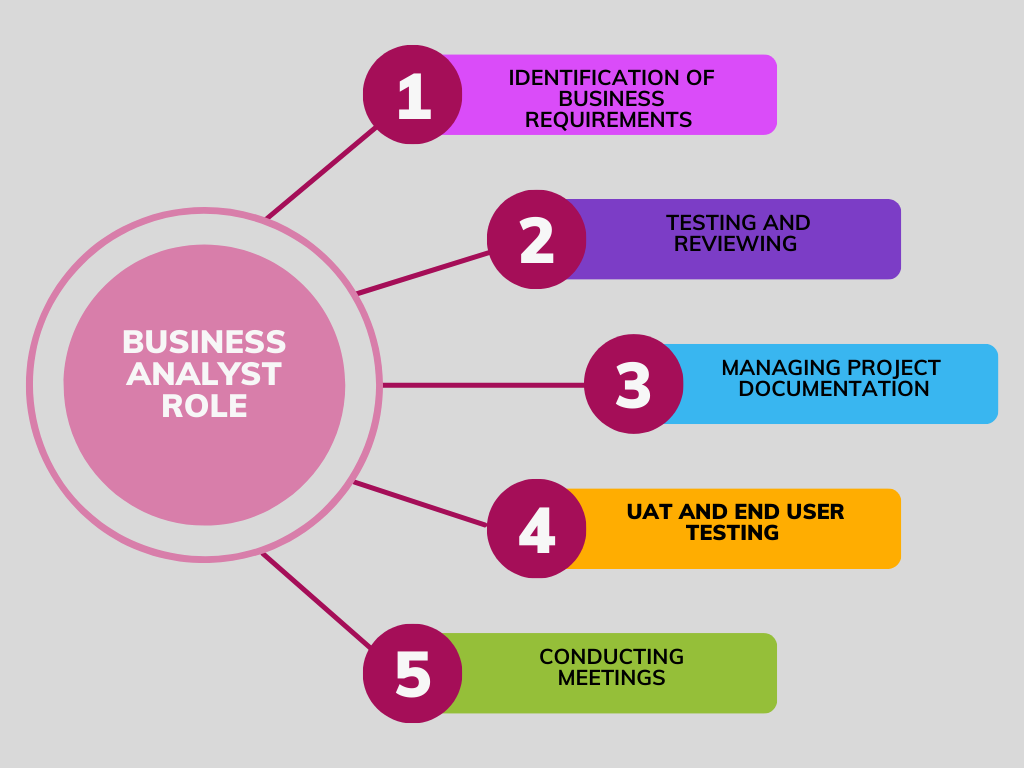Introduction to the Wellness Industry
The wellness industry is a dynamic and multifaceted sector that centers around enhancing individuals’ overall well-being. It encompasses a wide range of products, services, and practices aimed at promoting physical health, mental balance, and emotional vitality. As we explore this industry, we’ll uncover its remarkable impact on global health and lifestyle choices.
Significance of the Industry
- Health Enhancement: The wellness industry plays a pivotal role in empowering people to take charge of their health. It goes beyond mere disease prevention and focuses on proactive measures to enhance physical fitness, mental resilience, and holistic wellness.
- Economic Impact: Globally, the wellness market is booming, with an estimated worth of $6.6 trillion by 2024. This economic impact extends across various sectors, creating jobs, driving innovation, and contributing to economic growth.
- Consumer Demand: Consumers are increasingly prioritizing wellness. They seek products and services that improve their health, fitness, nutrition, appearance, sleep quality, and mindfulness. This demand fuels industry growth and innovation.


Growth Trajectory
- Expanding Horizons: The wellness industry continues to evolve rapidly. It embraces emerging trends, technological advancements, and shifts in consumer preferences. From wearable fitness trackers to mindfulness apps, the industry adapts to meet diverse needs.
- Resilience Amid Challenges: Despite global disruptions (such as the COVID-19 pandemic), the wellness industry remains resilient. Sectors like wellness real estate, mental wellness, and healthy eating have not only recovered but also surpassed their pre-pandemic levels.
- Holistic Approach: Wellness now extends beyond physical health. It integrates mental well-being, emotional balance, social connections, and environmental consciousness. This holistic approach ensures a comprehensive impact on individuals’ lives.


Sectors Within the Industry
- Personal Care and Beauty: This sector includes skincare, cosmetics, and grooming products that enhance physical appearance and well-being.
- Healthy Eating, Nutrition, and Weight Loss: Nutritional supplements, diet plans, and weight management programs fall under this category. It addresses dietary needs and promotes overall health.
- Physical Activity: Fitness centers, yoga studios, sports equipment, and exercise regimes contribute to physical wellness. Regular physical activity is essential for maintaining health.
- Wellness Tourism: Travel experiences that prioritize well-being, such as spa retreats, meditation getaways, and nature-based rejuvenation, form a significant part of this sector.
- Public Health, Prevention, and Personalized Medicine: Initiatives that focus on preventive healthcare, vaccinations, and personalized health assessments contribute to overall wellness.

Highly sought-after careers in the wellness industry
Let’s explore some of the sought-after careers in the wellness industry. These careers are your ticket to freedom plan.
Job Title: Wellness Coach
Job Description: As a wellness coach your role is to assist clients in achieving their well-being by addressing aspects of health such, as nutrition, exercise, stress management, and lifestyle choices.
Primary Responsibilities:
- Create wellness plans tailored to each client’s needs.
- Provide motivation and support to clients in adopting habits.
- Conduct one-on-one coaching sessions to guide clients on their wellness journey.
- Collaborate with clients to establish achievable goals.
Job Title: Nutritionist/Dietitian
Job Description: Nutritionists and dietitians specialize in understanding the relationship between food and health. They offer evidence-based advice and guidance to individuals, groups, and institutions.
Primary Responsibilities:
- Evaluate clients’ dietary needs and health objectives.
- Develop customized meal plans that align with requirements.
- Educate clients about nutrition practices for their goals.
- Monitor progress regularly and make necessary adjustments to the meal plans.
Job Title: Fitness Trainer/Instructor
Job Description: As a fitness trainer or instructor your main focus is designing exercise programs that enhance health, strength, and endurance levels for individuals seeking fitness improvements.
Primary Responsibilities:
- Lead group fitness classes. Provide training sessions for individual clients.
- Demonstrate exercise techniques ensuring safety during workouts.
- Continuously assess client progress. Modify workouts accordingly for results.
- Encourage fitness participation while motivating clients throughout their fitness journey.
Job Title: Yoga Instructor
Job Description: Yoga instructors guide students through yoga practices aimed at promoting flexibility, mental relaxation, as well, as spiritual well-being.
The main responsibilities include:
- Teaching styles of yoga such, as Hatha, Vinyasa, and Bikram.
- Emphasizing alignment and breath control during yoga sessions.
- Creating a supportive atmosphere for participants.
- Adapting classes to cater to varying skill levels.
Additionally, listing below some of the other roles in the field:
Massage Therapist:
Massage therapists utilize techniques involving touch and pressure to promote relaxation reduce stress and relieve muscle tension. Their duties involve assessing client needs and preferences providing massages addressing issues like sports injuries or chronic pain as well as maintaining client records and adhering to hygiene standards.
Holistic Health Practitioner:
These practitioners take an approach to well-being by considering the emotional and spiritual aspects of health. They combine alternative therapies like acupuncture or herbal medicine. Their primary duties include assessing clients’ needs promoting balance and natural healing practices educating clients on lifestyle choices that support wellness.
Mental Health Counselor/Therapist:
These professionals offer support to individuals facing health challenges by providing emotional assistance coping strategies and therapeutic interventions. They conduct group therapy sessions and assess and diagnose mental health conditions while developing treatment plans, for their clients.
Spa Manager/Therapist:
Job Description: Spa managers are responsible, for overseeing the day-to-day operations of the spa and ensuring that clients have a rejuvenating experience.
Main Responsibilities:
- Supervising staff creating schedules and managing inventory.
- Keeping the environment clean, serene, and hygienic.
- Offering spa treatments (if also working as a therapist).
- Focusing on improving customer satisfaction.
Challenges and Benefits of Working in this field
Working in the wellness industry brings forth benefits. It also presents its fair share of challenges. Understanding both aspects is crucial for aspiring professionals in this field.
Benefits:
Making a Positive Impact on People’s Lives. One of the aspects of working in the wellness industry is the chance to make a positive impact on people’s lives. Whether it involves helping clients achieve their fitness goals guiding individuals towards eating habits or offering support as a counsellor; wellness professionals play a crucial role in enhancing overall well-being.
Feeling Fulfilled: Witnessing clients undergo transformation and progress can be incredibly fulfilling. It is truly gratifying to know that your guidance and support have contributed to their health and happiness.
Diverse Career Paths: The wellness industry provides a range of career paths allowing individuals to pursue roles that align with their interests and passions. Whether someone is drawn to fitness, nutrition, mental health, or holistic healing there are opportunities for exploration.
Continuous Learning and Personal Growth: The field of wellness is dynamic and ever-evolving providing opportunities, for growth and ongoing learning. Whether it’s staying up-to-date with the research and trends or pursuing certifications professionals in the wellness field have the opportunity to continuously expand their knowledge and skills.
Challenges:
Potential for Exhaustion: Working in the wellness industry can be physically and emotionally demanding, which can lead to exhaustion if not managed properly. Wellness professionals often invest an amount of time and energy into supporting others, which can negatively impact their well-being if they neglect self-care.
Irregular Work Schedule: Depending on their role wellness professionals may have work hours that include early mornings, evenings, weekends, and holidays. This can disrupt the work-life balance. Require flexibility to accommodate client’s schedules.
Emotional Toll: Dealing with clients who are facing struggles and challenges can be emotionally draining. Wellness professionals may encounter individuals with health issues, body image concerns, or chronic health conditions. This requires empathy, patience, and effective coping mechanisms.
Competitive Industry: The wellness industry is highly competitive with numerous professionals competing for clients and opportunities. Building a career in this field requires expertise, effective marketing strategies, networking skills, and finding ways to stand out from the competition. The Importance of Taking Care of Yourself.
Considering the difficulties that come with being part of the wellness field professionals must prioritize self-care to maintain their well-being and effectiveness. This involves:
Establishing Boundaries: Professionals need to set limits, with clients and take breaks to prevent burnout.
Practicing Self-Kindness: Professionals in the wellness industry should prioritize their physical health by showing themselves compassion and seeking support when necessary.
Incorporating Personal Wellness Practices: By incorporating exercise healthy eating, mindfulness, and relaxation techniques into their lives professionals can ensure their well-being remains intact.
Seeking Support from Peers: Connecting with colleagues in the industry can provide support, advice, and camaraderie when dealing with challenges or sharing experiences.
In summary, working in the wellness industry brings rewards. Also, unique obstacles demand resilience, self-care, and a commitment to personal growth. By understanding and addressing these challenges head wellness professionals can flourish in their careers while making an impact, on others’ lives.
Impact of AI on Wellness
Artificial Intelligence (AI) is a transformative force within the wellness industry, revolutionizing how we approach health and well-being. Let’s explore eight impactful ways AI is reshaping this vital sector:
- Personalized Mental Health Care:
- Wellness chatbots assess users’ emotional states and provide guidance based on interactions.
- Data analysis and intelligent algorithms help mental health professionals deliver targeted treatments.
- Improved treatment recommendations enhance patient outcomes.
- Resource Quick Access:
- Wellness chatbots offer 24/7 assistance, especially in areas with limited healthcare resources.
- During emergencies, chatbots reduce isolation and provide timely support.
- Predictive Diagnostic Approach:
- AI models predict emerging mental health issues and relapse risks.
- Linguistic patterns, lifestyle trends, and environmental data aid mental health practitioners in preventive care planning.
- Quick Skills Enhancement:
- Cognitive training exercises, mindfulness techniques, and virtual reality therapies benefit global populations.
- Virtual reality addresses stigma and anonymity concerns, promoting engagement and reducing fear of judgment.
- Challenges: Bias:
- AI algorithms trained on biased data may lead to discriminatory outcomes.
- Facial recognition and prediction tech can be less accurate for people of color, affecting equitable healthcare access.
- Improved Access to Care:
- AI bridges gaps, especially for underserved or rural populations.
- Telehealth, remote monitoring, and AI-driven diagnostics enhance accessibility.
- Emotion AI Systems in the Wellness Economy:
- Despite risks, wellness businesses profit from AI-driven mental health care.
- Developers must address ethical concerns and ensure unbiased, effective solutions.
- Human Guidance for Best Practices:
- While AI empowers wellness, human oversight ensures ethical use and quality care.
- Collaboration between AI and wellness professionals leads to optimal outcomes.
Remember, AI isn’t just a buzzword—it’s a powerful ally in our pursuit of well-being!
AI impact on a wellness coach
AI health coaches are revolutionizing the wellness industry by leveraging artificial intelligence to enhance personalized healthcare management. Here are some ways in which wellness coaches benefit from AI:
- Convenience and Accessibility:
- AI health coaches provide 24/7 access to support and guidance.
- Integration with health apps and devices ensures seamless communication and data exchange.
- Personalized Support:
- Anonymously tailored recommendations address individual needs.
- AI analyzes vast amounts of data, charting patterns and trends over time, which is often impossible for human coaches to achieve.
- Cost-Effective Alternative:
- AI coaching serves as a viable alternative to traditional therapy.
- It offers consistent monitoring and guidance without the need for frequent in-person sessions.
- Enhanced Health Management:
- AI adapts and learns, ensuring wellness plans remain effective as clients progress.
- Remote monitoring capabilities contribute to overall health management.
- Evidence-Based Decision-Making:
- AI analyzes data efficiently, aiding health coaches in evidence-based decision-making.
- It unlocks new avenues of personalization and efficiency in wellness programs.
Remember, while AI enhances wellness coaching, human guidance remains essential for ethical use and optimal outcomes. Coaches and AI together create a powerful synergy for well-being!
FAQs
- What is a wellness coach?
- A wellness coach guides clients toward healthy lifestyles and overall well-being. They work in health clinics, fitness centers, or corporate settings, helping individuals and groups achieve positive health outcomes. Some even choose to be self-employed1.
- What does a wellness coach do?
- Wellness coaches:
- Identify areas for improvement in clients’ lifestyles.
- Set measurable wellness goals.
- Develop personalized wellness plans.
- Educate clients on healthy lifestyle changes1.
- Wellness coaches:
- How can I become a wellness coach?
- Consider these steps:
- Earn a degree: While not mandatory, a degree in health or nutrition can enhance your prospects.
- Gain experience: Work in related fields to build expertise.
- Get certified: Obtain wellness coach certifications.
- Develop communication skills: Active listening and empathy are crucial12.
- Consider these steps:
- What skills are essential for a wellness coach?
- Key skills include:
- Communication: Effective listening and empathy.
- Nutrition knowledge: Understand dietary needs.
- Goal-setting: Help clients set achievable objectives.
- Holistic approach: Consider mental, physical, and emotional aspects.
- Key skills include:
- How long should I work with a wellness coach?
- The duration varies based on individual needs. Some clients benefit from short-term coaching, while others prefer ongoing support4.
- Is wellness coaching different from therapy or nutrition counseling?
- Do wellness coaches give advice?
- Rather than giving direct advice, coaches empower clients to make informed decisions. They guide, educate, and support4.
- How is coaching done, and where?
- Coaching can be in person, over the phone, or virtually. Coaches work in various settings, including clinics, gyms, and corporate offices4.
- What credentials does a wellness coach have?
- Coaches may hold certifications from recognized programs. Look for credentials like NBC-HWC (National Board Certified Health & Wellness Coach)2.
- What are the biggest obstacles to achieving wellness?
- Common obstacles include time constraints, lack of motivation, and stress. Coaches help clients overcome these challenges1.
Remember, wellness coaches play a vital role in helping individuals lead healthier lives!





